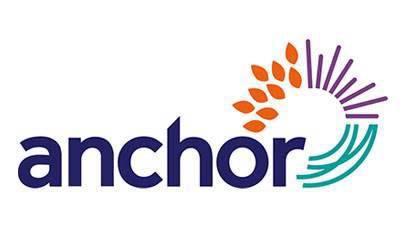 30
30Jun
“How Anchor are bringing new talent into social care via Apprenticeships”
We spoke to Dorothy Alexander, Apprentice Lead at Anchor, ahead of our Webinar that took place on June 9th. “Getting ahead in the race for early talent, what social care providers should do”.

Why are apprenticeships so important to Anchor?
We launched our apprenticeship programme back in 2015 to ensure development for existing colleagues, but also to bring new talent into the world of care.
In addition to the 400 existing Anchor colleague studying towards a qualification, we offer up to 100 places to apprentices who want to join us on our 15 or 18 month fixed term programme.
Anchor retains 75% – 80% of apprentices, which means they are an important contribution to our future workforce needs. With over 200 plus apprentices now qualified
How did Covid affect apprenticeships at Anchor?
It slowed things down a little, particularly for younger people, but is picking up again now. Some training providers come to the workplace, which has been harder to accommodate, and a good proportion of applicants have historically come from visiting local schools which hasn’t been as easy to do. However, we are also using social media, support from local networks and Skills for Care as well as online career platforms where students can find out more about social care before applying.

What would you say the biggest challenge is in recruiting young people?
It feels harder to recruit now than previously (have a read of our blog about recruitment issues in care. And the fact that the sector has been in the news even more during the pandemic is a double-edged sword.
There is a stigma associated to working in care that we believe is the biggest challenge. There is a need to break down pre-conceived ideas that both young people and their parents may have. Anchor apprenticeships range from level 2 to level 7 (which is the equivalent of a master’s degree). Anyone can request to study and the apprenticeship standards span all roles not just care. We see our apprentices as the talent pool for our leaders of the future and work hard to promote this.
Be ready to support for personal as well as work issues. They may not like their tutor, they may find some of the work, or shift work itself, overwhelming; particularly if it is their first job ever. However, you can set them up for success by giving honest feedback and addressing any issues early. They all have regular catch ups both with their managers, tutors, and the apprenticeship team. Apprentices are supernumerary so it’s important to make sure that the teams they are joining understand the commitment that the apprentice has made and what is required from them too.
What advice would you give other providers?
Support, support, support! Have a dedicated resource managing apprentices if you are able. This support should begin even before the apprentice starts and be there for any queries or concerns in the recruitment process. Advice should always be open and honest; it doesn’t help to sugar coat. All successful apprentices are contacted before they begin to engender a sense of value and touchpoints remain regular throughout their learning journey. In addition, there is also a strong buddy and mentor system in place.
Understand what success looks like. This may mean filling a permanent position at Anchor as the apprenticeship continues or helping a young person with the first step on their journey to becoming a nurse or a paramedic of the future.

Celebrate success! Anchor have an Apprentice of the Year and Rising Star of the Year, both of whom are put forward to the national apprenticeship awards.
If you’d like to find out more about recruiting apprentices or attracting more young people you’re your workforce, contact Amanda Marques on 07753871926.